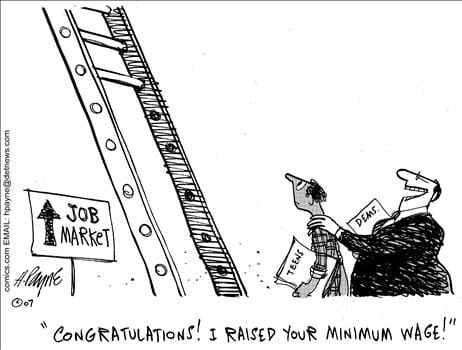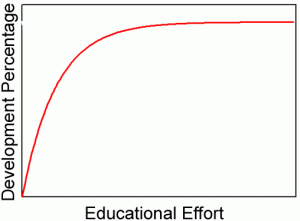I was not at all surprised to see that average SAT scores varied strongly by income bracket. What has surprised me is how quickly everyone has grabbed for the explanation that "its all due to test prep." It strikes me that the test prep explanation is a sham, meant to try to hide the real problem.
First, Alex Tabarrok says that most of the research out there is that test prep explains at most 20% of the variation by income, and probably less. This fits my experience with test prep. I have always felt that 90% of the advantage of test prep was just taking a few practice tests so when the actual test days come, the kids are comfortable they understand how each section of the test works and are not thrown by the types of problems they will face. My feeling is that most of what you can learn in fancy test prep courses is in those books they sell for about $40. We sent our kids to a course that cost a lot more than $40, but frankly I did not do it because I thought they would get any special knowledge they could not get in the book, but because I was outsourcing the effort to get them to do the work. Seriously, I think a parent with $40 and the willingness to make sure their kids actually goes through the book would get most of the benefit.
Which raises the question of whether test prep is correlated to income because of its cost, or whether it is correlated to income because high income folks are more likely to place value on their kids testing well and make them do the prep work. We will come back to this in a minute.
So if its not test prep, what does drive the difference? I don't know, because I have not studied the problem. But I can speak for our family. My kids do well on SAT-type tests because they go to a tough rigorous private school. Let's take one example. When my daughter was a sophomore in high school, she scored a perfect 80 (equivalent of the SAT 800) on the writing and grammar section of the PSAT. Now, my daughter is smart but no Ivy-bound savant. She took no prep course. My daughter aced the PSAT grammar because her freshman teacher drove those kids hard on grammar. I am talking about a pace and workload and set of expectations that kids in our junior high school start talking about and dreading two years before they even get to the class, and this at a school already known for a tough work load.
This teacher is legendarily fabulous, so obviously that is hard to replicate everywhere. But she is fabulous because my kids actually came away excited about Homer and other classics. This is what I pay private-school money for. But what she did in grammar, what got my daughter her perfect score, could be emulated by about any competent teacher...theoretically. But in fact it can't happen because such an approach could never survive in a public school. The work expectations are way too high -- parents and students would revolt. It only works for those who self-select.
Well, it only works today for those who self-select and can afford a private school. Unfortunately, we have an education system where everyone is forced to pay tuition to what is at-best a teach-to-the-mean school. If one wants more, they have to be wealthy enough to pay tuition to a second school. Which is why school choice makes so much sense. Why should only the wealthy have the ability to self-select into more intensive programs? BUt this is a conclusion most the education establishment is desperate for people not to reach. Thus, the hand-waving over test prep.
Of course, there are a million other wealth, genetic, and parental effects that come into this equation. For example, my kids read for fun, probably in large part because my wife and I read for fun. How many kids read 10+ books outside of school each year? They do this not because my kids are awesomer than other kids, but simply because that was the expectation they grew up with, that we spend free time reading books. Other families might spend their free time, say, doing home improvement projects such that their kids all grow up great woodworkers. I am not sure one set of activities is superior to another, but my kids end up testing well. Of course, I am not sure they can use a screwdriver. Seriously, over Christmas break I asked my 20-year-old son to pass me the Phillips head screwdriver and he had no idea which one that was.
I was thinking about the question above of how one separates out parental expectations from all the other effects (like parental DNA and income and quality of schools, etc.) I interview high schoolers for Princeton admissions, so I have come to learn that some public high schools have advanced programs, to allow kids some self-selection into a more rigorous program within the context of public schools (this is usually either an AP program, an honors program, or an IB program). By the way, the existence of these programs at public schools correlates pretty highly with the average income of that school's district.
Here would be an interesting study: Take high schools with some sort of honors program option. We want to look at the income demographics of the kids who chose the honors program vs. those who choose the standard program. We would therefore want to look only at high schools that take all comers into the honors program -- if they have some sort of admissions requirement, then this would screw up our study because we want to test solely for how demographics affect the choice to pursue a more rigorous, college-oriented program. I would love to see the results, but my hypothesis is that test-prep is a proxy for the same thing -- less about income per se and more about parental expectations.



